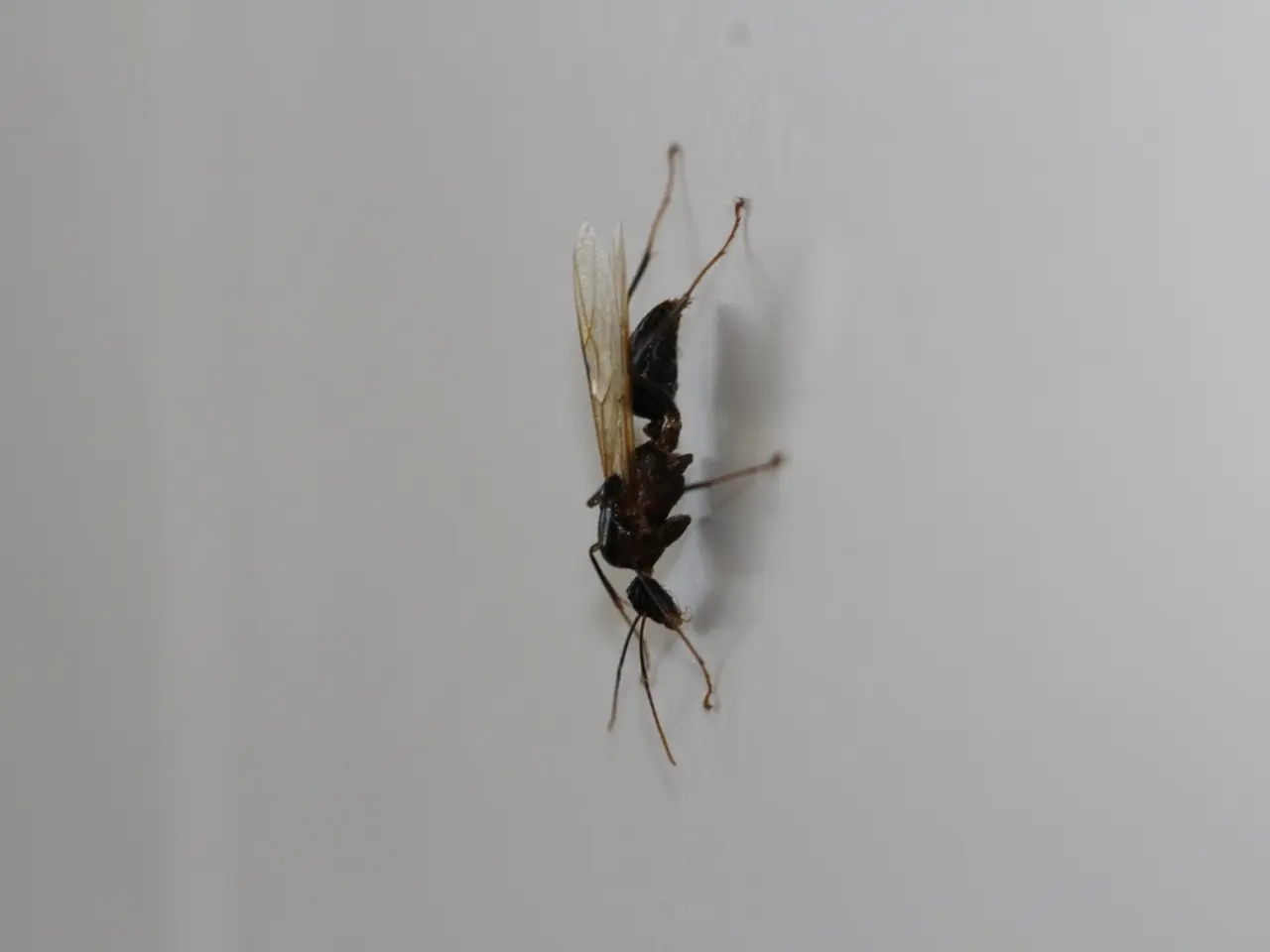Asian hornets pose a significant danger to European bees and overall biodiversity, triggering alerts across the continent.
In a significant development, researchers at the University of Southampton have discovered a distinctive buzzing sound produced by Asian hornets that could aid in tracking and containing the invasive species. This buzz, at about 125 Hz and approximately 51 decibels, differs noticeably from the sounds made by European hornets and honeybees [1][4].
The Asian hornet, known as Vespa velutina, has already established itself in several European countries and was recently captured in Cork, Ireland [2]. In the U.K., there have been 73 confirmed sightings and 28 nests of Asian hornets as of 2025, more than double the numbers recorded at the same point in 2024 [3]. This spike in sightings follows the first recorded overwintering of Asian hornets in the U.K. during 2023-24, suggesting they may now be able to survive year-round in the country [3].
The unique acoustic signature of Asian hornets enables directional microphones and related technologies to detect nests from distances of up to 20 meters, making them particularly useful because the nests can be hidden underground, high in trees, or in other hard-to-find locations [1][4]. These special listening devices have been shown to distinguish Asian hornet presence more rapidly than traditional visual searches, which can take several days and allow the hornets to cause significant damage to beehives in the meantime [1][4].
Development efforts now focus on integrating these acoustic sensors with drones to accelerate detection further [1]. While direct electrocution devices like electric harps and physical barriers such as muzzles are also being trialed to prevent hornets from reaching beehives and reduce their impact on bees, these are control rather than detection methods, and their effectiveness is still under scientific evaluation [2].
Mounting fears exist that the Asian hornet could continue its advance if not quickly contained. Authorities in Ireland have issued a biosecurity alert, warning that even a single nest could cause serious harm to local ecosystems and agriculture [5]. Rapid deployment of response teams has occurred following the report of the Asian hornet in Ireland [5].
The Asian hornet is an invasive species that is known for attacking honeybees and other pollinators. The discovery of this distinctive buzzing sound could potentially help in the early detection and accurate location of Asian hornet nests, crucial for containment efforts and protecting native pollinators and biodiversity in Europe [1][4].
Sources:
[1] The Guardian. (2025, March 1). Special listening devices help detect Asian hornets in the UK. Retrieved from https://www.theguardian.com/environment/2025/mar/01/special-listening-devices-help-detect-asian-hornets-in-the-uk
[2] BBC News. (2025, February 20). Asian hornet found in Cork, Ireland. Retrieved from https://www.bbc.co.uk/news/uk-ireland-57307153
[3] Defra. (2025, February 15). Asian hornet sightings and nests in the UK reach record high. Retrieved from https://www.gov.uk/government/news/asian-hornet-sightings-and-nests-in-the-uk-reach-record-high
[4] British Beekeepers Association. (2025, February 10). Acoustic detection of Asian hornets. Retrieved from https://www.bbka.org.uk/news/acoustic-detection-of-asian-hornets/
[5] Irish Times. (2025, February 12). Biosecurity alert issued after Asian hornet found in Cork. Retrieved from https://www.irishtimes.com/news/environment/biosecurity-alert-issued-after-asian-hornet-found-in-cork-1.47893967





